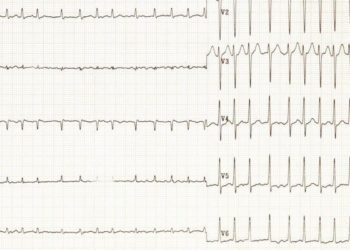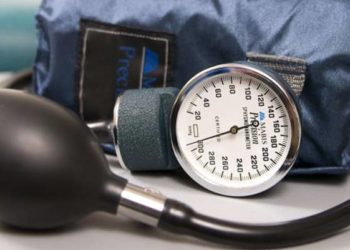Poor sleep efficiency associated with major adverse cardiovascular events
1. In a large, community-based cohort, poor sleep efficiency and wake after sleep onset were associated with major adverse cardiovascular events.
Evidence Rating Level: 2 (Good)
Sleep efficiency (SE) is defined as the ratio of time spent sleeping to time spent in bed. It is considered to be an objective measure of the quality of sleep, with an SE of ≥ 85% considered to be efficient sleep, associated with higher energy and elevated mood. This study sought to evaluate the relationship between cardiovascular disease and SE objectively measured with polysomnography. It made use of data from the Sleep Heart Health Study, a community-based, prospective cohort study investigating the cardiovascular ramifications of sleep-disordered breathing. 3,810 participants (mean [SD] age = 63.2 [11.0] years, 45% male) underwent in-home overnight polysomnography. The primary composite outcome was the first occurrence of a major adverse cardiovascular event, defined as cardiovascular death, CHF, MI, and stroke. Participants were sorted into four categories of SE: ≥ 90%, 85% to 89.9%, 80% to 84.9%, and < 80%, which corresponded with 29.5%, 24.5%, 17.6%, and 28.4% of participants, respectively. Those with SE < 80% were more likely to be older and be male. After a mean follow-up of 10.9±2.8 years, 474 cases of the primary cardiovascular outcome occurred, with the highest incidence among participants with SE < 80% (17.5% vs. 13.2% vs. 10.5% vs. 7.3%; p < 0.001) compared with those with 80% to 84.9%, 85% to 89.9%, and ≥ 90%, respectively. Furthermore, after adjusting for variables like age, sex, BMI, smoking status, and comorbidities, SE < 80% was found to be an independent predictor of primary composite cardiovascular outcomes (HR 1.338, 95% CI 1.025 to 1.745, p = 0.032). Finally, wake after sleep onset of fourth quartile (> 78.0 minutes) was associated with the primary composite cardiovascular outcomes (HR 1.436, 95% CI 1.066 to 1.934, p = 0.017). Overall, this study suggests that poor SE as measured objectively by polysomnography is associated with incident cardiovascular disease and that such measurements may have a role in predicting future outcomes.
Click to read the study in JAHA
Image: PD
©2020 2 Minute Medicine, Inc. All rights reserved. No works may be reproduced without expressed written consent from 2 Minute Medicine, Inc. Inquire about licensing here. No article should be construed as medical advice and is not intended as such by the authors or by 2 Minute Medicine, Inc.







